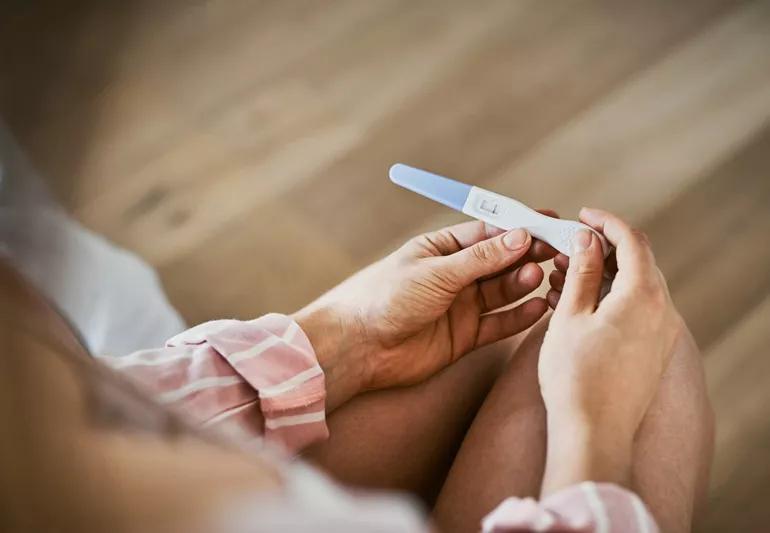Some couples should see a doctor sooner than others

Image content: This image is available to view online.
View image online (https://assets.clevelandclinic.org/transform/5f819801-a0cf-4ac5-bb4c-307ddeb8cc24/infertility-negative-pregnancy-test_jpg)
Not Pregnant Yet? When to Seek Help
Trying to have a baby can bring feelings of joy and anticipation about expanding your family. But when conception doesn’t happen right away, it’s easy to start worrying about infertility.
Advertisement
Cleveland Clinic is a non-profit academic medical center. Advertising on our site helps support our mission. We do not endorse non-Cleveland Clinic products or services. Policy
“By definition, infertility is failure to conceive after one year of unprotected intercourse,” says infertility specialist Jeffrey M. Goldberg, MD. “If pregnancy hasn’t been achieved in one year, it’s time to consult an infertility specialist.”
Infertility affects about 15% (1 in every 6 or 7) of reproductive age couples.
While most couples should consult a doctor after a year of trying, Dr. Goldberg says some should see an infertility specialist sooner. Women who are 35 or older should be evaluated after trying for only six months since age-related decline in fertility is more rapid in the mid to late 30s and 40s. While a fertile 30-year-old woman has about a 20% chance of getting pregnant during each cycle, by age 40 those chances have dropped to about 5%.
Others who should see a doctor sooner than a year are:
Advertisement
Although not an infertility problem, women who have had two or more miscarriages should also seek help.
Since infertility involves two patients, finding a potential cause(s) requires tests for both partners. These may include:
The infertility specialist uses these findings to recommend a path toward conception, which may include:
Your doctor can help you decide the best way to proceed with your plan to have a baby.
Advertisement

Delivered every Tuesday!
Sign up for our Health Essentials emails for expert guidance on nutrition, fitness, sleep, skin care and more
It's a letter about the news!
Learn more about our editorial process.
Advertisement
No, most hormonal birth control doesn’t affect your future fertility
Common causes and when to seek help
The field of uterus transplant is advancing
Talk with them about their new sibling early and often
Dental care is not only safe during pregnancy, but it’s also highly recommended
A healthy pregnancy diet includes good amounts of folic acid, DHA, calcium and more
If left untreated, you risk complications, early labor and passing the infection to your baby
Lifestyle changes, like a healthy diet and exercise, can help with fertility issues
Type 2 diabetes isn’t inevitable with these dietary changes
Applying a hot or cold compress can help with pain
Pump up your iron intake with foods like tuna, tofu and turkey